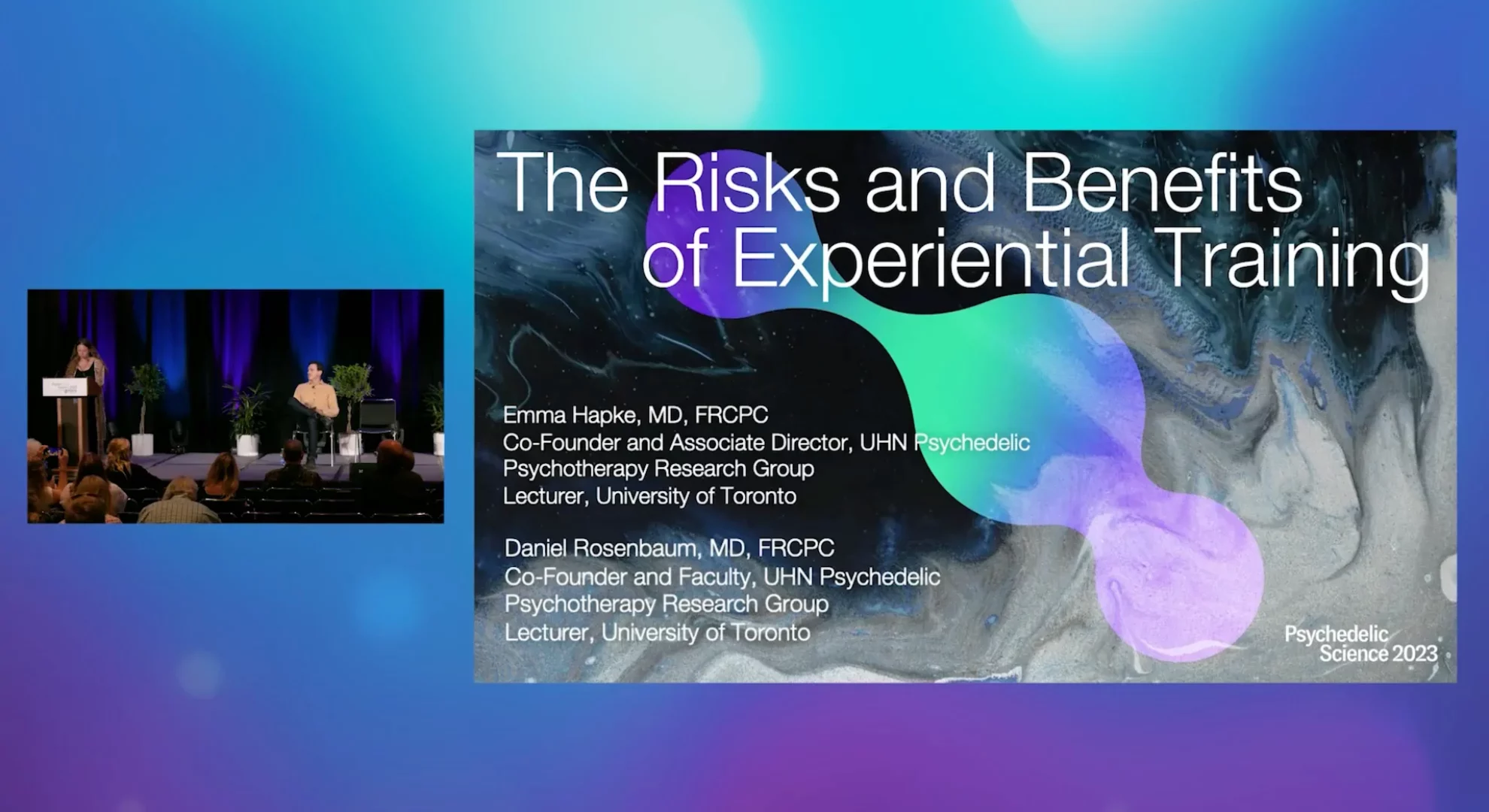
The Risks and Benefits of Experiential Training of Psychedelic Therapists
As psychedelic therapy becomes mainstream there is a pressing need for well-trained therapists to deliver high-quality treatments. Does having first-hand experience with psychedelics as part of their training better prepare therapists to guide patients in non-ordinary states of consciousness (NOSC)? To date, the role of experiential training in psychedelic therapy has been debated. This talk will begin by reviewing the risks and benefits of experiential training for therapists in an academic health sciences environment. Drawing on literature from psychoanalysis, mindfulness, experiential psychotherapies and bioethics, we will explore potential benefits including therapeutic, modeling, empathic, persuasive and theoretical functions (Sandell, 2006). We will then examine risks including dual relationships, confidentiality, equity/diversity/inclusion issues, physical and psychological risks, undue pressure, admission biases and resource intensiveness. To bring this theoretical discussion to life, we will share results from a mixed-methods study that we conducted at the Nikean Psychedelic Psychotherapy Research Centre (NPPRC), Canada’s first non-profit academic research centre focusing on psychedelic therapy. This study explored the acceptability and feasibility of using breathwork to induce a NOSC in a psychedelic therapist training program. We will conclude by sharing a proposed study to provide psilocybin therapy to graduates of the NPPRC’s training program.
Share: The Risks and Benefits of Experiential Training of Psychedelic Therapists
Facebook
Twitter
LinkedIn
Email




